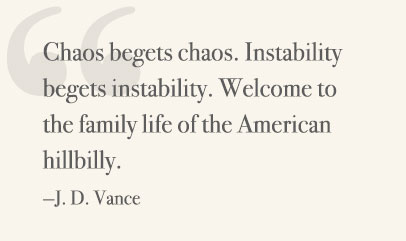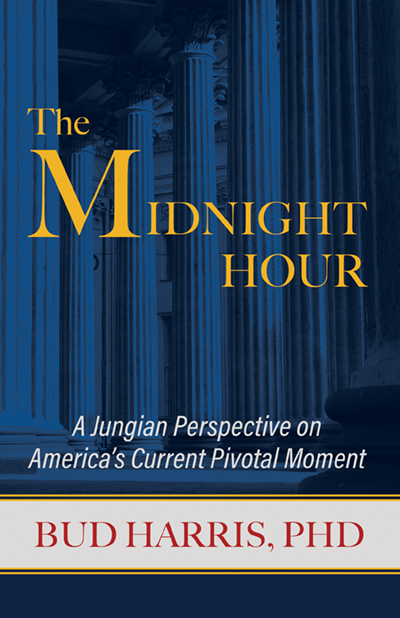Dear Reader,
The following is a continuation of my blog series based on my book The Midnight Hour: A Jungian Perspective on America’s Pivotal Moment. If you are just now picking up on the series, you might start with the Introduction: Welcome to the Challenges of Change.
I hope that it will help you, as writing it has helped me, to find a candle to contribute to your light.
Whether you agree with me or not, I hope my work helps you clarify your own position, both within and to the chaotic times surrounding us. Above all, I hope it helps you create a new vision of the future and a new hope that draws you to commit to it.
Bud Harris
Asheville, North Carolina
The Midnight Hour:
A Jungian Perspective on America’s Pivotal Moment
Chapter 9: Isn’t It Time to Stop Treating Each Other As If We Are Enemies?

 Or more simply, welcome to our American political family.
Or more simply, welcome to our American political family.
“Winning is the only thing” may have been a successful theme for Vince Lombardi, long-time coach of the Green Bay Packers, a professional football team whose ability to make huge amounts of money depended on winning. But Lombardi’s philosophy is incredibly destructive in politics, where the goals should be government of the people, by the people, and for the people. Of course, this attitude of winning is absolutely tragic in our relationships with each other, in our educational system, in business, and in nonprofessional sports—all areas where real leadership, character, and cooperation are truly needed.
As you can see, there are some things we need to wake up to and learn from this shipwreck of our ability to be civil to each other. The first thing we need to learn is that living in a world full of turmoil — poverty, crime, violence, or more commonly, anxiety, tension, frustration, serious illness, and clashing parents and battling kids — teaches our biology early on that we are in a scary world. We learn we can’t feel safe or trust people to be good. Early in our lives our inner alarm system is programmed to be on high alert all the time. Without even realizing it we develop a way of life at a highly destructive level of stress.
Pay attention to the kind of personality J. D. Vance describes in Hillbilly Elegy. He points out that traumatic childhood events and their consequences are programmed into an individual and shapes them as adults. The events are called “adverse childhood experiences,” or ACEs. Vance cites research reporting that well over half of the children of working-class adults have experienced such an event, and about 40 percent have had multiple ACEs. For children of professionals, the number is 29 percent. However, from my experience the percentage is much higher in impoverished areas and is more shockingly predominant in our total society than we are anywhere close to being aware of.
Vance goes on to explain the psychological genesis and effects of these events:
ACEs and their consequences reach far into adulthood. The trauma need not be physical. The following events or feelings are some of the most common ACEs:
- being sworn at, insulted, or humiliated by parents,
- being pushed, grabbed, or having something thrown at you,
- feeling that your family members don’t support each other,
- having parents who are separated or divorced,
- living with an alcoholic or a drug user,
- living with someone who is depressed or has attempted suicide,
- watching a loved one be physically abused.
ACEs happen everywhere, in every community…
Children with multiple ACEs are more likely to struggle with anxiety and depression, to suffer from heart disease and obesity, and to contract certain types of cancers. They’re also more likely to under-perform in school and suffer from relationship instability as adults. Even excessive shouting can damage a kid’s sense of security and contribute to mental health and behavioral issues down the road.
Harvard pediatricians have studied the effects that childhood trauma have on the mind. In addition to negative health consequences, the doctors found that constant stress can actually change the chemistry of a child’s brain.
Stress, after all, is triggered by a physiological reaction. It’s the consequence of adrenaline and other hormones flooding our system, usually in response to some kind of stimulus. This is the classic fight-or-flight response we learn about in grad school. It sometimes produces incredible feats of strength and bravery from ordinary people.
J. D. Vance is telling us that growing up poor in harsh circumstances leaves us hard-wired for conflict. And that wiring remains until we change it, even when there is no more conflict.
Now tell me what you think might happen when a policeman from a background similar to J. D. Vance’s, one that programmed his reactions to be fight or flight, encounters a black teenager from a poor area that has the same fight-or-flight triggers combined with the propensity to use words as weapons.
* * * *
Yes, people are programmed to behave this way without realizing the destructiveness of what they are doing. Much of the rage, rudeness, and misogyny we heard during the 2016 election reflected the outcry of people neurologically programmed this way. Yet it was also the roar of people who felt powerless, felt they didn’t count, and felt that their values and lives were becoming worthless. Up to then they had felt “faceless.” This reality doesn’t mean we should accept threatening, destructive behavior. But we damn well better listen to what’s behind it because it can get much worse. I can remember riots and burning cities in the late sixties.
I am irritated when politicians manipulate collective pain that has become a roar to their own ends, just as despicable demagogues have done in the past. The more I write about these realities the more powerless I feel, the more anger I feel, and the more I realize that today there is nothing tangible in our political parties that encourages me personally. During the election of 2016 I prayed, “Good Lord, please let this election be over!’ But damn it all, it didn’t stop on election day. The shit keeps hitting the fan.
Oh yes, maybe I’m beginning to understand. What if this rage and roar being expressed is a wounded cry of pain in reaction to the greed and indifference that we so readily accept in our society? What if they are the darkest expression of our collective indifference and irresponsibility, surfacing as misogyny, neo-Nazism, or racial prejudice? It is much harder for us to look in the mirror, as Pogo the possum did in a comic strip fifty years ago, and say, “We have met the enemy and he is us.” We damn well better pay attention to the rage around us and seek to understand it, so we do not fall into the trap of scapegoating these angry people, whether they are black, women, or “deplorable.”
And guess what—as the world of working-class families tanks, so grow their fears of not being able to feed their children, not being able to take care of aging parents and seriously ill loved ones, and not being able to live in dignity in the face of disappearing standards of living. Stress levels and anger only increase with these fears. Consequently, the multiple ACEs for their children also increase. As do their levels of anxiety, depression, obesity, heart disease, autoimmune diseases, and certain kinds of cancer.
And guess what again—our more affluent families, the professional and upper-middle-class ones, also live at very high stress levels of anxiety and fear. They too, after the economic collapse in 2008, are worried about their financial safety and income security. Concerns about their children’s school performance, college costs, aging parents, and shrinking health care coverage are eating them up. These households, too, are often filled with tension, and their members writhe in the grip of suppressed anger in the overworked, overstretched, overscheduled world of parents and kids. The families are suffering from angry outbursts—and their children are having their share of adverse childhood experiences which erode the foundation of their growing personalities. They, too, can have fight, flight, or freeze patterned into their brain. Underneath our tendency to appear in a positive frame of mind, beneath our daily busyness, far too many of us are stressed and scared and have trouble admitting it.
How long have we been living in a toxic sea of anxiety, depression, addictions and psychosomatic illnesses? How long will it take us to realize stress makes us sick?
Are We Becoming Addicted to Anger, Despair, and Indifference?
Here are a few other points and questions you might want to think about. Remember that J. D. Vance said that due to fight, flight, or freeze reactions, “disagreements were war and you played to win the game.” Sounds like our national politics to me. Do you think so many of us have become anxious and frustrated that we have generally become indoctrinated into this fight, flight, or freeze mentality? Do you think that treating our political disagreements as war has become the format for the “shouting heads” in our media and on the internet? Remember when Crossfire appeared in the nineties as the warfare-shouting model of political discussion? Now fast forward to our major news, radio talk shows, and blogs today. Are we creating a self-perpetuating cycle of fight, flight, or freeze in our world of political discussions?
Whether it is intentional or not, our media has learned to capitalize on how we experience ourselves vicariously through it by keeping us revved up to the point where our neurotransmitters such as norepinephrine, adrenaline, and dopamine are released, stimulating our hearts and brains. As you see, we might want to ask ourselves if our media in all its forms is attracting audiences by putting our emotions and acuity on high alert. Stop and listen. Can you imagine how easy it is today for people whose primary experience of life comes through the media to get physically addicted to it and emotionally controlled as well? The thrill, the rush—positive or negative—and the intensity of the hormones being released can be addictive even though they are propelling us into states of feeling hopeless, victimized, and enraged.
Well, I wonder, how does one of these shows or blogs make you feel? How did they make you feel during the presidential election period? Many people are learning to turn them off in disgust. But others are only paring them down to the ones that support their feelings, their emotional perspective, that help them feel validated. But far too many of us end up ready to go into a hyper-emotional state whenever politics are even mentioned. And there are also those of us who have been conditioned to freeze rather than to tell others they are temporarily insane.
As for the answers to these questions, I am still left wondering how much of our arousal is due to our conditioning growing up and how much is caused by or simply manipulated by the media. In any event, we cannot be a healthy society and be driven by an addicting media. We must not let ourselves slip into the trap of letting media politics or politicians continue to take advantage of and exacerbate our fears, frustrations, and weaknesses the way demagogues have throughout history.
In the 2016 presidential election, we saw that a nonvote is a vote, and a vote to say to-hell-with-you-all is also a vote. But unless we wake up and take action to change, we will continue to feel betrayed by our system and our government—defrauded and alone. This result is tragic. We can do better.
I wonder how long it is going to take us to learn to love life and care for each other. When I say love, I don’t mean the usual sentimental mush or sex-driven movie scenes. I mean a condition in the human spirit so profound that it encourages us to develop courage; I mean the courage to put in the kinds of solutions I am writing about. I mean the courage to build bridges, to reach out to other people and to help them better their lives.
 The above is Chapter 9 of my book The Midnight Hour: A Jungian Perspective on America’s Current Pivotal Moment.
The above is Chapter 9 of my book The Midnight Hour: A Jungian Perspective on America’s Current Pivotal Moment.
BUY FROM YOUR LOCAL INDEPENDENT BOOKSTORE
Book Excerpts and Resources
, 2021, America, being human, capitalism, citizenship, Elder Wisdom, fear, hope, living authentically, poverty
2 Responses to “Isn’t It Time to Stop Treating Each Other As If We Are Enemies?”
Please stay positive in your comments. If your comment is rude it will get deleted. If it is critical please make it constructive. If you are constantly negative or a general ass, troll or baiter you will get banned. The definition of terms is left solely up to us.
Leave a Reply
I live in an affluent county and the women are the worst because of comfortable ness. They are Mrs nellie olsen from little house on the prairie. So there is no answer in using a bad childhood as an excuse. I did not grow up around here. It is clean and I can walk safely, and get used items.
Thank you so much for sharing your thoughts about this chapter. My efforts in this chapter are to reflect on the realty that much of our lack of humanity to each other begins in a large part in our inhumanity to our children. While a bad childhood may not be an excuse, I believe as a society we need to understand how deeply and carefully we need to care for our children and through them our future.